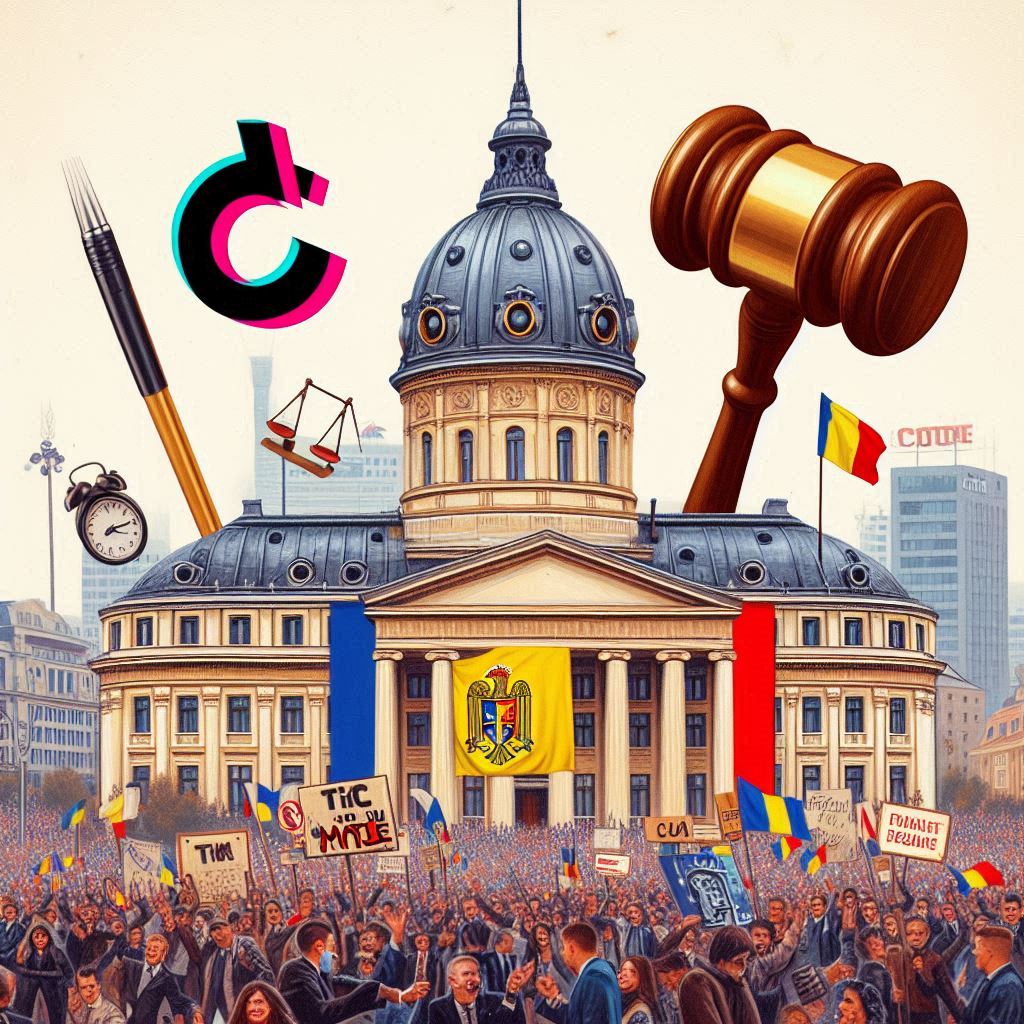Tribunals are not enough to stop the decline of democracy
Three Ideas to Reverse the Crisis

An article by Vision team
Should we fight political extremism in court while not in the competition for electorate consensus? What could be a realistic regulation on media for “open societies” to avoid the destabilizing influence brought by the foreign states with technology? The situation of Romania, a European Union country sharing a 600-kilometer border with Ukraine, offers some valuable insights.
Eight days ago, as the European Union was grappling with internal challenges, it faced another potential crisis. Calin Georgescu, an unknown engineer, won the first round of Romania’s presidential elections with just one proposal: to cease all support for Ukraine in its conflict with Russia. His openly hostility towards NATO quadrupled his poll numbers and ousted both governing parties from competition. Last Sunday, the parliamentary elections, to some extent, curbed the rise of the far-right, mitigating the impact of Georgescu’s victory. However, if the EU had to add to Hungary and Slovakia, the dissenting voice of Romania’s head of state would be enough to permanently remove EU from peace negotiation table regarding a war for which Europe has almost paid the full bill.
Can we protect democracy from extremismand foreign interference before it’s too late? Romania’s Constitutional Court has taken a bold stand, signaling its resolve to address this critical issue. Following the annulment of the first round of the presidential elections — deemed so deeply compromised by alleged external meddling that it was beyond salvage — the nation is preparing to restart the entire electoral process from scratch. This decisive move raises urgent questions about the resilience of democratic institutions in an era of unprecedented challenges. . But the initial question remains, which is also sadly confirmed by the judicial affairs of Donald Trump and Biden’s son: how do we defend a democracy seemingly imploding at the worst possible time?
The legal route to protect democracy can backfire, eroding public confidence in the democracy it is intended to safeguard and exploding the uncertainty that people want to decrease. A viable strategy for democracies requires political solutions with three levers.
The first lies in the regulation on social media. EU has invested heavily in the Digital Services Act (DSA), a law aiming to regulate big social platforms like TikTok and X. Although the regulation consists 155 premises and 93 articles, it risks overlooking the essential points. The key aspects of implementation does not necessarily follow the written rules.
The most insidious threat is not “fake news,” which are not even new, but the legitimate fact that the platforms themselves are acting as the regulators. They define the ranking of information to be proposed to users. By consistently prioritizing certain types of content, such as sensationalist crime stories, platforms can distort users’ perceptions of reality.
One article of the DSA requires platforms to explain their algorithms by which information is sorted in “intelligible” words and provide users with options to adjust the algorithms for themselves. However, the law fails to assess whether users truly understand these choices or actively customize their settings to align with personal preferences, such as prioritizing positive news over negative. European Commission or another agency could implement a simple evaluation to rank platforms by their transparency, flexibility and reliability. It’s a matter of pragmatically moving from obligations and fines to incentives for responsible media that stand out for non-manipulated information. This approach could foster new, competitive media—especially European ones—that view responsibility as a competitive advantage.
Second, there’s a need for a more comprehensive rethinking of democracy. Democracy cannot remain a quadrennial vote event where all expectations for change and hackers’ attacks focus on. Unlike toothpaste, democracy grows stronger the more it is used. To rebuild trust, we must multiply the moments and forms of collective decisions involving citizens. We shouldn’t diminish them because we lost trust just as what we are doing now. Expanding these participatory moments can fortify democracy against vulnerabilities.
Third, the subject of democracy is ultimately about having citizens who are capable enough to detect manipulation and to have their own opinion group. Well-educated citizens use higher standards of values to distinguish the authenticity of information and select the way to understand them. The education here does not just refer to the so called “digital education” obtained through fragmented posts on social media, through which there gradually forms a chaotic and addictive system based on emotions, contrary to rationality. We should also acknowledge that we simply want to go back to physics, chemistry, politics, history and classical studies that get everybody to be more used to process data into relevant knowledge.
Addressing democracy’s problems requires more than focusing only on “symptoms” or only reacting to crises as they unfold. It demands the strategic-thinking action even though it seems too late now. It also requires a different, more optimistic semantics. We do. Not just want to defend democracies, but to strengthen. A wise way to countering foreign influences would be demonstrating consistent and actionable values to inspire others worldwide.
References
Haeck, P. (2024) EU Commission questions Tiktok in wake of Romanian election scrutiny, POLITICO. Link.
Shock as pro-russia independent wins first round of Romanian election (2024) The Guardian. Link.
Haeck, P. et al. (2024b) Tiktok’s Romanian reckoning, POLITICO. Link.
Vanberghen, C. (2024b) The power of social media in elections: Lessons from Romania’s tiktok case study, Modern Diplomacy. Link.

